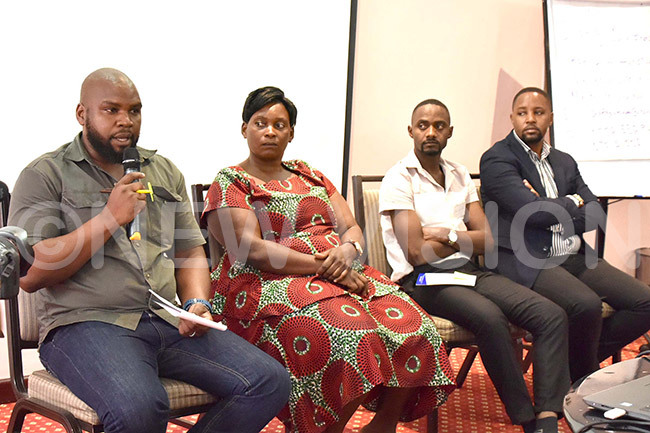'Abuse of children rampant in orphanages'
Harriet Nakawuki, a former caretaker at the defunct orphanage in Kampala, narrated that even with food at their disposal, some caretakers were not eager to feed the children.
PARENTING|CHILD CARE
KAMPALA - Children in care homes are abused and neglected, emerging details reveal. Speaking recently at a media workshop, insiders revealed how children were constantly mistreated; sometimes spending hours without food.
Harriet Nakawuki, a former caretaker at the defunct orphanage in Kampala, narrated that even with food at their disposal, some caretakers were not eager to feed the children.
"Caretaking is a paid job, but it is not from the heart. Many times the children would start having dinner at 5:30 pm, but we would be going home in minutes. You would make sure everyone has eaten in that short time. We would want to clear the utensils and give room to the workers coming in for the night shift. Therefore, slow eaters would not eat. It was the routine that every child must adhere to, lest they are left out," said Nakawuki
"Sometimes, some people refused to feed the children who they thought were likely to soil their clothes and thus increase the volume of their chores. Yet, these are babies. They don't know toilet etiquette. They have not been trained to use a potty. But here they are, being starved, for no reason of their own," Nakawuki lamented
She particularly narrated the story of one child whose level of development was at a slow pace. "Everyone thought he was a disabled child. Actually, it was because everything is done in a group. There is hardly anyone who will bond with the child and encourage them," said Nakawuki.
Nakawuki, a wife and mother of four, disclosed that she had fostered some children in liaison with the probation officers, and seen a difference.
"I love children. Even the one they said was disabled improved in no time when I took him on," she disclosed.

She made the remarks during a recent media engagement on the effect of growing up in institutionalized care in Kampala. Organized by Child's I Foundation, the workshop sought to find ways of advocating for the need to ensure every child grows up in homes, not orphanages.
Joel Sserwadda, a former beneficiary at a different orphanage home revealed how the children experienced abuse by a caretaker. "At one time, a caretaker asked me to have a bath with them. When you are young, you think it is normal. But this is gross," he revealed.
"The children's home does not prepare you for life outside. There are things I regret personally," said Sserwadda.
Government speaks out
An estimated 2.7 million children are orphaned in Uganda, with 50,000 Ugandans growing up in orphanages.
The Head of the Alternative Care Unit at the gender ministry Shafiq Butanda said the government was determined to ensure quality care for vulnerable children in such homes. He admitted that the ministry was aware of some cases of mismanagement in institutionalized care.
"We are in the process of certifying worthy care homes," he said, adding that the ministry has already embarked on the crackdown on illegal homes.
Butanda, however, encouraged Ugandans to adopt or foster children. "We are more interested in seeing children go into community-based options like fostering, local adoption and kinship," said Butanda.
Several researchers have identified a host of negative outcomes of institutional care, including attachment disorders, learning disabilities, and even developmental delays. A 2010 report by Better Care Network notes that while families and family-based care are imperfect, the alternatives like orphanages are much worse.
"Families have better potential to enable children to establish the attachments and other opportunities for individual development and social connectedness than does any form of group institutionalized care," the report states.
RELATED TO THE STORY
The dark side of orphanages